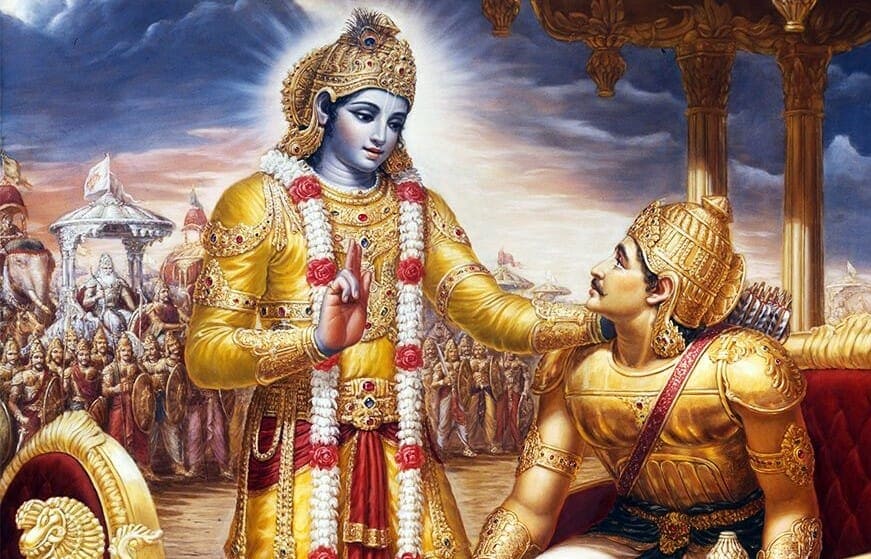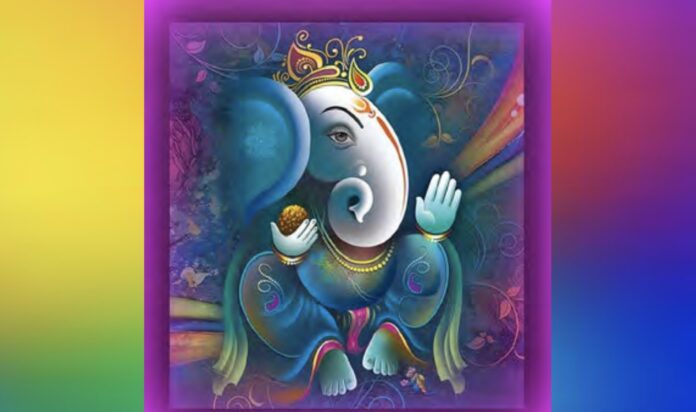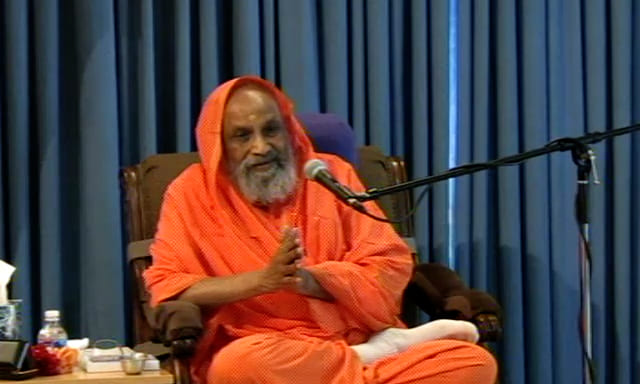Swami Dayananda Saraswati
An excerpt from Swami Dayananda’s opening talk at the First Annual National Committee Members’ Convention at Arsha Vidya Gurukulam on May 27, 1989. Published in the 5th Anniversary Arsha Vidya Gurukulam Souvenir, 1991.
The knowledge of the Vedas is ārṣa-vidyā. Like any body of knowledge, such as physics, we do not know when it started. You can say Newtonian physics started with Newton’s propounding certain laws, but before Newton discovered the laws, physics was there. Even monkeys know some physics. When a monkey jumps from one tree to the other, it makes sure that it catches the other branch, because if it doesn’t, the monkey knows it will fall. And thus physics is a body of knowledge of laws that already exists, which animals instinctively know in order to survive.
As with physics, ārṣa-vidyā didn’t start at a given time. The Vedic tradition that has been coming down to us in an oral form has no beginning.
Therefore, we say ārṣa-vidyā is beginningless. This knowledge is too ancient to be Indian. There is no Indian God, there is no Indian ātmā; there is no Indian truth, much less is there Indian electricity. And therefore, there is nothing Indian about ārṣa-vidyā. India happens to enjoy the privilege of retaining this living tradition which belongs to humanity. Not because of us, but in spite of us, it has somehow survived. That is because of our rṣis—thanks to all of them and many other people, whose names we don’t know. Whether in the south of India, or in the east or west or in the Himalayas, there was this flow, this Ganga of knowledge. It has always been flowing in a simple form between the banks of gurus and śiṣyas and between the banks of parents and children flooding the hearts. All we know is that in their glory this Ganga of knowledge has been flowing.
It is all due to the efforts of our forefathers. In their long history, there were times when everything was at its lowest ebb. There were times when they were proud rulers of their own destiny. There were times when they were ruled by some others who didn’t have a value for this kind of knowledge and culture. But in spite of all that, you find ārṣa-vidyā has survived because of its intrinsic worth and because it works. Eight hundred years of calculated destruction by foreign rulers wouldn’t have allowed this tradition to exist anywhere in the country if it didn’t have intrinsic worth.
It is not a mystic tradition, a set of beliefs, which will die when the person holding it dies. Any belief’s survival requires organisation. But here, without organisation, without a hierarchical structure, without a papacy, without diocese, without congregation and parish, it has survived.
To do this, it must have intrinsic worth. It is not simply beliefs handed down; it is knowledge handed over. In order for a belief to survive it only requires repeated saying and some anaesthetised minds. A belief, being a judgement before knowledge, is not like a provisional belief that you have for a teacher until he proves himself wrong, or that you have for a theory until it is proved to be wrong. A belief has no proof of reference. When I say I am the mouthpiece of God, for example, what is the proof? There is no proof at all except to believe what I say. Therefore, there is no proof at all. Whereas, knowledge is different. Knowledge is something which is communicable, like one plus one is two. That the sum is two is not a belief.
If it is, someone will believe one plus one is twenty-five and someone else will believe one plus one is one-and-a-half. There would have been different beliefs about the sum of one plus one. But then, one plus one is always two for Americans as well as Indians. It is a fact and therefore it is communicable.
Ārṣa-vidyā is communicable. It is a vision that can be communicated and shared by a person who himself or herself has been exposed to the sampradayā, methodology, of teaching. This methodology of teaching is so thorough; it doesn’t leave anything to be desired. Ārṣa-vidyā is a tradition of immediate blessing. It is not something that blesses you later. It is a tradition of immediate blessing and this is why it works.




